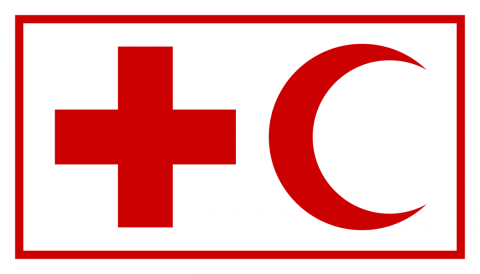Humanitarian Shelter and Settlements IFRC/UNHCR
The course encompasses theoretical and practical knowledge, which provides participants the necessary skills to lead and coordinate shelter clusters in the field, in the context of a natural disaster. The course instructs students to anticipate and provide a high quality humanitarian shelter response. It prepares participants with an overview on shelter relief programmes and delves into assessment and evaluation, plans of action, logistics and settlement options, including architectural design and low technologies applied to shelters. Participants will also be given practical information on designing shelters in recovery programmes.
At the end of the course, participants will have acquired strategic and practical knowledge on shelter coordination policies, methods, tools and procedures in the humanitarian response system. Likewise, participants will learn to apply architectural and constructive solutions in a sustainable manner in all steps from relief to recovery. This course draws upon a team of lecturers with field experience in international relief institutions.
This course is offered as a part of the 60 ECTS Master’s Degree in International Cooperation: Sustainable Emergency Architecture. Students will be integrated into the classroom with the postgraduate level students taking the complete master’s programme.
The master’s level short course “Humanitarian Shelter and Settlement”, offered in Barcelona by the Universitat Internacional de Catalunya (UIC Barcelona), is certified by the International Federation of Red Cross and Red Crescent Societies (IFRC).
Who can apply
Holders of a bachelor’s degree in one of the following disciplines: architecture, landscape architecture, urban planning and design, engineering, environmental design and geography.
In the first week, students will be given an overview of how the humanitarian sector coordinates emergency responses, the mandates of various international NGOs, the legal frameworks for asylum seekers, refugees and IDPs (Internally Displaced Persons), as well as the design and construction of shelters that are context and climate specific.
During the second week, we will go into detail on WASH (Water, Sanitation and Hygiene), examining both handbooks as well as context-specific and culture-specific considerations when designing a WASH programme or camp planning.
The third week focuses on camp design and management. Students will design a camp for a hypothetical emergency. To gain an understanding of the often complex and difficult reality of working in the humanitarian sector, problem solving exercises will be used in class which are based on real, lived experiences of refugee camp experts. The course will end with a multiple choice exam, and successful students will be given a certificate upon completion.
Please note: The exact schedule of the course may vary due to the availability of our teaching staff, who are often on-call in case of any humanitarian emergency.
Teachers
Andreas Schiffer
Instructor and expert in vocational training, with over 25 years’ experience in the humanitarian sector in disaster and conflict response. He has worked with NGOs such as Doctors Without Borders, Action Against Hunger and Oxfam Intermón as a logistician, coordinator, WASH expert, consultant, trainer and researcher in numerous countries around the world.
Daniel Ledesma
Architect, researcher and expert in shelter construction.
Gonzalo Sánchez-Terán
Gonzalo has worked for over 15 years organising, managing and implementing emergency projects in refugee and IDP camps in Guinea Conakry, Liberia, the Ivory Coast, Chad and Ethiopia. He is also a regular tutor and lecturer for the International Diploma in Humanitarian Assistance at Fordham University, New York, and for the Master's Degree in International Development Cooperation at Comillas Pontifical University, Madrid.
Marta Peña
Architect and senior officer in the Shelter and Settlements Department at the International Federation of Red Cross and Red Crescent Societies (IFRC).
Veronica Sánchez Carrera
Urban planner and architect. Co-founder of n’UNDO and its technical consultancy and intervention office n’OT. She has focused her activity on Humanitarian Aid, a field in which she has worked with different organisations in both development and emergency response. She has conducted research on refugee camps and informal settlements and is currently writing her PhD thesis on Ebola Management Centres.
Prerequisites & admissions
Application
- Online registration
- Please submit the following documents via e-mail:
* Document must bear the university’s official seal.
** If you do not have the diploma, please submit a receipt of payment of the fees required to obtain the diploma or a document from your university certifying your expected date of graduation.
A photocopy of your passport 1 passport-sized photo A certified* copy of your diploma** Letter of motivation Up-to-date CV English certification (at least a B2 level)
Accepted students
Once accepted, you must pay 100% of the full cost of the course.
Accommodation and visas
It is the students’ responsibility to find their own accommodation and secure the necessary visas.
Contact
Information and admissions
Anna Dembski
adembski@uic.es
Phone number / WhatsApp: +34 651 826 335
